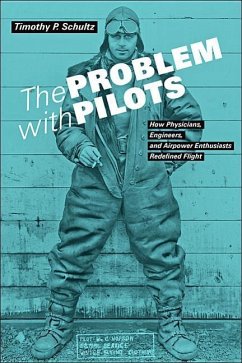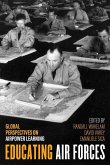As aircraft flew higher, faster, and farther in the early days of flight, pilots were exposed as vulnerable, inefficient, and dangerous. They asphyxiated or got the bends at high altitudes; they fainted during high-G maneuvers; they spiraled to the ground after encountering clouds or fog. Their capacity to commit fatal errors seemed boundless. The Problem with Pilots tells the story of how, in the years between the world wars, physicians and engineers sought new ways to address these difficulties and bridge the widening gap between human and machine performance. A former Air Force pilot, Timothy P. Schultz delves into archival sources to understand the evolution of the pilot-aircraft relationship. As aviation technology evolved and enthusiasts looked for ways to advance its military uses, pilots ceded hands-on control to sophisticated instrument-based control. By the early 1940s, pilots were sometimes evicted from aircraft in order to expand the potential of airpower¿a phenomenon much more common in today's era of high-tech (and often unmanned) aircraft. Connecting historical developments to modern flight, this study provides an original view of how scientists and engineers brought together technological, medical, and human elements to transform the pilot's role. The Problem with Pilots does away with the illusion of pilot supremacy and yields new insights into our ever-changing relationship with intelligent machines.
Hinweis: Dieser Artikel kann nur an eine deutsche Lieferadresse ausgeliefert werden.
Hinweis: Dieser Artikel kann nur an eine deutsche Lieferadresse ausgeliefert werden.








